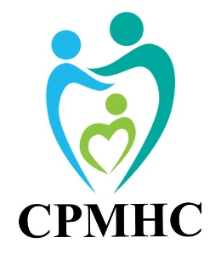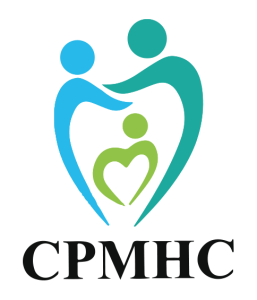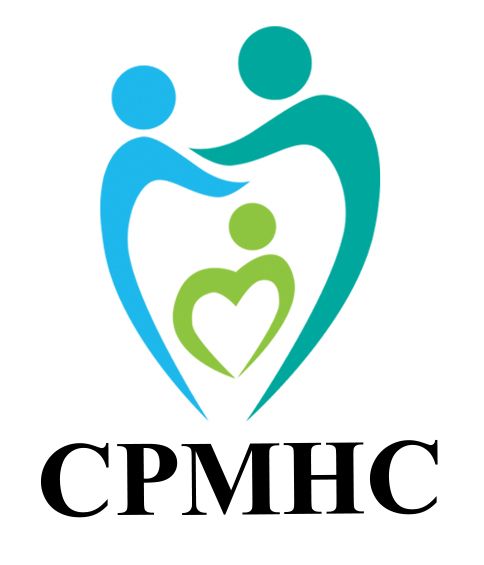Flora's Story
Flora’s Babakhani’s lifelong dream was to be a mother.
At 44 years old, after years of fertility treatments, Flora, a single mom by choice of Toronto, Ontario, finally and happily became pregnant.
Her sister, Mimi Dendias told us however, although Flora was very overjoyed to be pregnant, she was also very anxious throughout her pregnancy and would often call Mimi concerned about the health of her baby. She was deemed a high risk pregnancy because she had diabetes and she would call the hospital weekly asking for ultrasounds to make sure everything was ok.
Mimi kept trying to reassure Flora that once she had Amber, she would be so happy and everything would be well.
Mimi wishes Flora would have received help for her anxiety during her pregnancy.
“I wish that someone had seen how overly anxious and upset she was,” Mimi told us. “She never told me that anyone assessed her or asked her about her mental health.”
Mimi believes her sister struggled with mental health issues her whole life. At age 39, Flora, a chartered accountant, was diagnosed with post traumatic stress disorder due to past events in her life and went on medication. When she started trying to get pregnant, however, she stopped taking her medication for fear that it would harm her baby. No one told her otherwise.
Flora gave birth to Amber via a scheduled C-section at 37 weeks on November 4th, 2021.
“Flora was so happy. She was ecstatic,” Mimi told us. “She was showing us Amber. She was telling us how amazing she felt. She couldn’t believe she had a beautiful healthy baby girl. She was on cloud nine, on top of the world, just really, really happy.”
When Flora didn’t return Mimi’s calls the next few days, Mimi just thought Flora was busy being a new mom. But when Flora eventually called Mimi three days later, Mimi began to get worried.
“She was hysterical, absolutely hysterical,” Mimi told us, “She was really upset, really angry. She went from one extreme to the other in just three days.”
That’s when Mimi learned that Flora was suffering from severe edema and needed to stay at the hospital for treatment. Mimi thought Flora was upset due to the physical struggles she was experiencing and hoped Flora would be better emotionally once her edema was under control.
“Looking back on it now, however, a lot of it was probably mental,” Mimi told us. “It wasn’t just something physical. It was also her mental health. She definitely wasn’t diagnosed. She definitely wasn’t taking medication.”
A few days later, Flora was sent home with Amber but had to return to the hospital a short time later as her edema worsened. This time she stayed for a total of two weeks and wasn’t able to see Amber at all during that time.
“We were in a pandemic,” Mimi said. “Flora felt so alone. She was really not doing well, emotionally, mentally, and physically.”
When Flora did eventually return home, she was reunited with Amber. A nurse would visit her every couple of days to administer IV medication and her physical condition began to improve.
Though it seemed that Flora was on the mend physically, Mimi noticed that mentally, Flora seemed to be distancing herself from Amber.
“She didn’t want to change her diapers and she didn’t want to feed her all that much,” Mimi told us. “But Flora never really expressed at that time that she was feeling really upset in any way. The only indication that we had was that she was quite disconnected from the baby.”
Weeks went by. Then, just over two months after Flora gave birth to Amber, and only three days before Flora tragically passed away, Flora suddenly messaged Mimi asking to speak to her sister urgently.
Flora told Mimi that she couldn’t say much other than that her life was over and that she was going to jail. She said people were watching her, her computer had been hacked, her apartment and phone were bugged, and that she would have to leave very soon.
She told her Mimi that she had transferred money to her sister because she was afraid someone was going to hack into her bank account.
“I had absolutely no idea what was going on,” Mimi said. “She was talking about identity theft so I asked her if she had gone to the police. She said going to the police wouldn’t help. I had no idea what was happening.”
Mimi told Flora she would call her the next day to help her figure out what was going on, but before she could do that, Flora called Mimi the next day herself, and apologized for her behaviour on the phone the previous evening. She said she was just really tired, not to worry, and that everything was fine.
“I was in shock,” said Mimi. “How do you go from one extreme to the other like that?”
Mimi kept asking Flora if she was sure she was ok and Flora kept saying she was completely fine.
“I promise, everything’s ok,” said Flora “I love you so much.”
“I love you too,” Mimi replied.
It was the last time Mimi spoke to her sister.
“I didn’t know anything about postpartum psychosis,” said Mimi. “I had only ever heard about postpartum depression.”
Postpartum psychosis happens to approximately 1-2 in 1000 women. It is one of the rarest perinatal mental illnesses along the perinatal mental illness spectrum and it is a medical emergency that requires immediate attention. Symptoms can include paranoia, hyperactivity, rapid mood swings, and delusions or strange beliefs.
Mimi spoke to her mom and her mom said that she, her dad, and a few friends also noticed Flora’s strange behaviour that week and were trying to get Flora help. They tried enrolling her in a perinatal mental health program but Flora didn’t want to see a health care professional because she was afraid Amber would be taken away from her. Flora’s family managed to speak with a doctor over the phone on Thursday and made an appointment for Flora to see the doctor in person on Monday.
Tragically, on the Friday, the next day after her family spoke with the doctor, Flora died by suicide. That was January 14th, 2022, two months and ten days after Flora gave birth to Amber.
“She was so close to getting help,” Mimi told us. “I don’t think there was ever a proper assessment of any kind. And I’m shocked as well because when she did call me from the hospital three days later, and she was hysterical, and surrounded by doctors and nurses, I just thought, well, everyone’s assessing her physical health, why aren’t they checking on her mental health? That should be part of it.”
“I feel like the system doesn’t treat it (perinatal mental illness) with as much importance as it should have,” said Mimi. “It wasn’t until this happened that I realized how many women go through this. It’s so important to raise awareness.”
When the Canadian Perinatal Mental Health Collaborative learned of Flora’s story, we were heartbroken and vowed to help Flora’s family and ensure that our work to improve perinatal mental health care in Canada continues.
Through “Flora’s Walk for Perinatal Mental Health”, we are raising funds for organizations across Canada working to deliver timely access to perinatal mental health services and for CPMHC to continue our advocacy and awareness work.
To donate, visit www.FlorasWalk.ca.
“Flora would be so proud to raise awareness for other people because she was that type of person,” Mimi told us. “She would love that you are doing this in her honour.”


